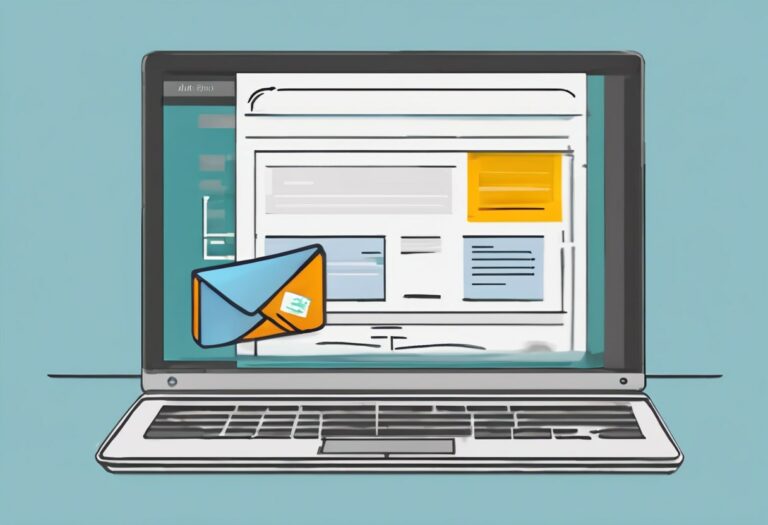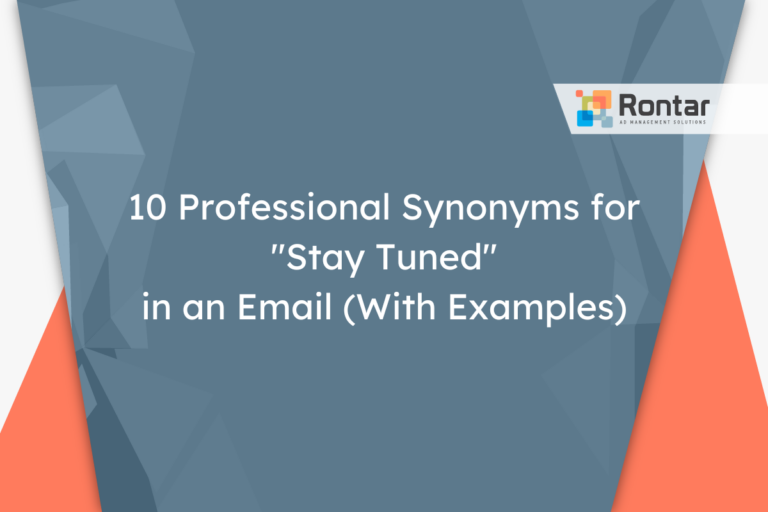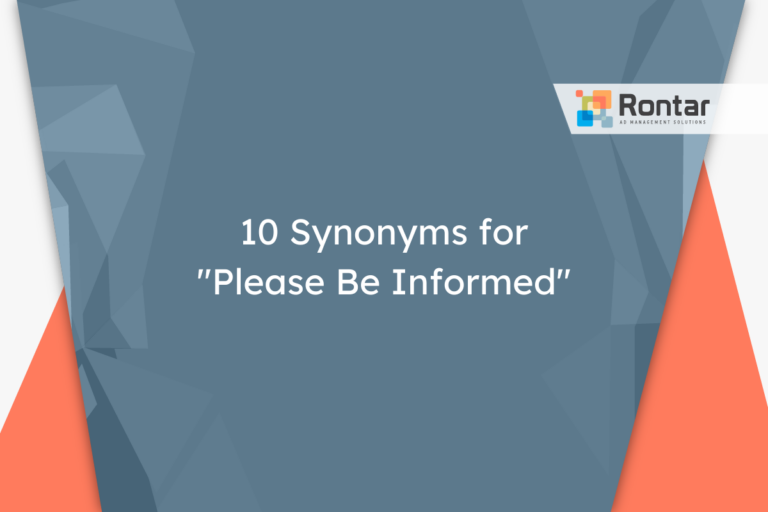10 Other Ways to Say “Please Let Me Know When Would Be a Convenient Time”

Setting up work meetings and appointments is a daily task. However, finding the right words to ask for someone’s availability can sometimes be tricky.
This article explores different ways to ask “Please let me know when would be a convenient time” without sounding too formal or casual. Each alternative is explained to help you choose the best fit for your situation, making your communication smooth and respectful.
Is It Professional to Say “Please Let Me Know When Would Be a Convenient Time”?
The phrase “Please let me know when would be a convenient time” is regarded as professional, formal, and polite. It effectively communicates a willingness to accommodate the other person’s convenience, highlighting respect for their time and commitments.
This phrase is especially useful in business emails, meeting requests, and when arranging appointments with colleagues, clients, or any professional contacts.
Email example:
Dear Mr. Thompson,
I would like to discuss the upcoming project details with you at your earliest convenience. Please let me know when would be a convenient time for you, so we can arrange a meeting accordingly.
Looking forward to your response.
Best regards,
Emily
Let’s explore the pros and cons of using this phrase:
Pros:
- Shows respect for the recipient’s time
- Improves the formality and professionalism of your message
- Encourages a prompt and specific reply
Cons:
- May be seen as overly formal in very casual or familiar contexts
- Could be interpreted as indecisive if overused
Someone might want to consider using an alternative phrase if the situation calls for a more casual tone or to avoid repetition. Having synonyms or alternatives can also help tailor the message more closely to the relationship with the recipient or the communication’s context.
10 Other Ways to Say “Please Let Me Know When Would Be a Convenient Time”
Finding the right words for a professional email can be crucial. Here are 10 common alternatives that strike a similar tone:
- Could you suggest a good time for a meeting?
- When is a good time for you to connect?
- What time works best for you?
- Are you available for a meeting at your convenience?
- Could we find a suitable time for a discussion?
- When would be a suitable time to meet?
- Can we schedule a time that is convenient for you?
- Do you have a preferred time for our meeting?
- When is it convenient for you to meet?
- Is there a time that fits well into your schedule?
1. Could you suggest a good time for a meeting?
This phrase is slightly less formal than the original, but remains very polite and professional. It directly asks for participation from the recipient, making it feel more collaborative. It’s a great synonym for situations where you want to emphasize collaboration or equality in the decision-making process.
We recommend using this alternative in emails to colleagues or clients with whom you have an ongoing relationship. It signals openness and flexibility, making it suitable for any professional medium, especially in emails.
Example:
Dear Mark,
For our upcoming project discussion, could you suggest a good time for a meeting? I am open to your schedule.
Best,
Sarah
2. When is a good time for you to connect?
This alternative is informal yet polite, making it perfect for less formal professional settings. It implies a willingness to meet at the recipient’s convenience while maintaining a professional demeanor. It is ideal when the relationship with the correspondent allows for a slightly more relaxed tone.
This phrase is better suited for emails to co-workers or industry peers. It’s also appropriate for virtual meeting requests or when proposing a quick check-in call. This format is flexible and works well in digital communication forms like emails or messages.
Example:
Dear Sarah,
Thank you for your update. Regarding the new initiative, when is a good time for you to connect? I'd like to hear your insights.
Warm regards,
John
3. What time works best for you?
This option is very professional and straight to the point. It’s one of the most common synonyms for arranging meetings, as it clearly communicates a desire to prioritize the recipient’s schedule. This phrase is particularly effective when you want to convey efficiency and respect for the other person’s time.
We recommend this alternative for all types of professional interactions, from emails to clients to messages with colleagues. It’s versatile and appropriate for a wide range of situations, including formal and less formal contexts.
Example:
Hello Jackie,
Looking forward to our discussion on the project. What time works best for you? Let's lock in a date and time.
Best,
Alex
4. Are you available for a meeting at your convenience?
This phrase is both formal and polite, suggesting a high level of flexibility for the recipient. It is a great alternative that emphasizes courtesy and the recipient’s comfort. It is suited for professional circumstances where you want to offer maximum flexibility.
Suitable for formal emails to superiors or new clients, it conveys respect and a willingness to adapt. It works best in emails where establishing a respectful and accommodating dynamic is crucial.
Example:
Dear Dr. Wilson,
I hope you are doing well. Are you available for a meeting at your convenience? I have some updates on our research project that I would like to share with you.
Sincerely,
Tom
5. Could we find a suitable time for a discussion?
This alternative is slightly more formal, promoting a professional yet polite atmosphere. It’s a good choice when trying to arrange a time that respects both parties’ schedules. It’s gentle in its request, making it a comfortable choice for professional settings.
It’s especially good for emails to individuals you haven’t met yet, or for scheduling meetings with external partners. This wording is adaptable, and suitable for both email and other written communication mediums in professional contexts.
Example:
Hello Elaine,
As we move forward with the planning phase, could we find a suitable time for a discussion? I value your input greatly.
Regards,
Derek
6. When would be a suitable time to meet?
This alternative is both professional and polite, perfect for when you need to show respect for the other person’s schedule while trying to arrange a meeting. It’s direct but maintains a courteous tone. It’s an effective synonym for more formal invitations or requests.
Better suited for formal emails, particularly to higher management or new clients, where you aim to maintain a respectful approach. This phrase works well across various professional channels, especially in emails.
Example:
Dear Mr. Patel,
Regarding our upcoming project, when would be a suitable time to meet? I'm eager to discuss our next steps.
Kind regards,
Sophia
7. Can we schedule a time that is convenient for you?
This question is straightforward and professional, specifically crafted to prioritize the recipient’s convenience. It’s polite and suggests a readiness to adapt to the recipient’s schedule. This alternative is ideal for fostering a cooperative atmosphere.
It works well in emails to colleagues and clients alike, especially when you’re initiating a meeting and want to make it as easy as possible for them to say yes. This approach is particularly effective in email communications, where tone can sometimes be misinterpreted.
Example:
Dear Lily,
I hope all is well on your end. Can we schedule a time that is convenient for you to go over the budget revisions?
Best wishes,
George
8. Do you have a preferred time for our meeting?
This is a polite and professional way to inquire about the recipient’s availability, making it a considerate choice for arranging meetings. It slightly shifts the initiative to the recipient, asking them to provide a time that suits them best. This phrase is a good synonym for ensuring the meeting time accommodates their preference.
This phrasing is most appropriate in professional emails where you have a friendly or established relationship with the recipient. It’s effective for communication with peers or long-standing clients, ideally through email.
Example:
Hello Simon,
As we need to finalize the project details soon, do you have a preferred time for our meeting?
Cheers,
Anna
9. When is it convenient for you to meet?
This alternative keeps the message professional and polite, while being a bit more informal than the original. It invites the recipient to share their availability in a way that puts their convenience front and center. It’s a synonym that works well in maintaining a friendly yet professional tone.
Great for use in emails to co-workers or clients with whom you have a semi-formal relationship. It’s also useful for setting up informal meetings or catch-ups, suitable for communication via email or internal messaging systems.
Example:
Hi Jordan,
Quick catch-up needed on the Smith project. When is it convenient for you to meet? Let me know!
Regards,
Mia
10. Is there a time that fits well into your schedule?
This question is polite, professional, and shows a high level of flexibility and consideration for the recipient’s schedule. It is a respectful synonym for the original, designed to accommodate the availability of the person you are asking. It works well when you want to be especially cautious not to impose.
This phrasing is ideal for more formal requests or when you are unsure of the recipient’s schedule. It’s perfect for emails to senior management or busy clients, as it conveys respect for their time and obligations.
Example:
Dear Vanessa,
I hope you're having a great week. Is there a time that fits well into your schedule for a brief discussion on the marketing plan?
Looking forward to it,
Oliver
Final Thoughts
Choosing the right way to ask for someone’s time shows respect and professionalism. The alternatives provided in this article can help you adjust your request based on who you’re talking to and the level of formality needed. Using these options can make your communications smoother and more effective, leading to better responses and more successful meetings.






